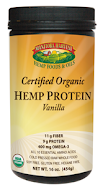
The latest super fruits is called the cassis berry. Heard of it yet? Probably not. It is a native shrub of Northern Europe and Northern Asia and its in the same category as the acai and maqui berries. In the early 1900s, cultivation of the cassis berry was banned in America, as it was wrongly considered a threat to the logging industry. As a result, cultivation of these rich berries was discontinued for a century. In 2003, New York was the first state to right the wrongs as the ban was lifted and others followed. So due to its unique history, cassis berries are not as well known in American as they are in Europe and Asia. Americans are just beginning to discover the their new berry friend.
Cassis berries were used as a substitute for oranges in World War II, with a vitamin C potency four times that of oranges. Rich in anthocyanins and having twice the antioxidant power of blueberries, the cassis berry is all set to compete for the next super fruit crown. The cassis berry is sweet and has an astringent flavor, similar to that of a black grape. It grows in clusters and has a thin skin. Underneath the skin is a gelatinous, nutrient-dense green pulp consisting of rich nutrients ranging from B vitamins, vitamin C, and essential minerals like calcium, iron, magnesium, phosphorous, potassium, and zinc. It also has substantial amounts of fiber, amino acids, and essential fatty acids called gamma-linolenic acid. Just 100 g of the cassis berry offers 300% of the recommended daily amount of vitamin C in our diets.
Research is available as the berry is already consumed in Europe and Asia and below are just a few examples of some of the health benefits the berry has.
- bone health (calcium and magnesium ratio of 2:1)
- positive influence on heart health and eye healthanti-inflammatory and immune-boosting properties
- benefit to brain health
- anthocyanins in the berry are believed to act as neuro-protective agents
- acts as a detoxifier to cleanse tissues of oxidative stress and also stimulates liver functions
- relieves menopausal symptoms and improve venous circulation
- leaves of the berry have medicinal properties and are used in herbal tea preparations.
Source: Nutiritonal Outlook



.jpg)



Where did you get your cassis (seeds?)
ReplyDelete